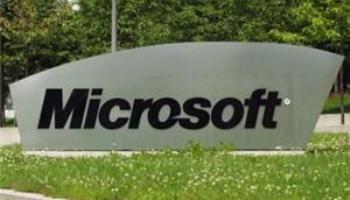Microsoft, Novell Point To Increased HPC Interest

More and more businesses are seeking high-performance computing (HPC) interoperability solutions, at least according to Microsoft and Novell
Businesses are increasingly comfortable with high-performance computing (HPC) after Microsoft and Novell reported an increase in the number of companies seeking their HPC interoperability solution.
This solution deploys workload management across both the Windows HPC Server and SUSE Linux Enterprise Server, and allows IT managers to balance server workloads by running specific applications on either Windows or Linux platforms. HPC utilises either supercomputers or computing clusters in order to crunch large amounts of data in an expedited manner.
IT Spending
Additionally, Microsoft and Novell jointly reported a new client base among a variety of economic sectors, including financial, health care, higher education and technology. While businesses with a need for streamlined infrastructure management – and lower-cost crunching of massive amounts of data – would presumably always be in the market for such a solution, the uptick also hints that business IT spending could again be on the rise following a massive global recession.
 Microsoft has seen a slowed rate of business adoption for other products, including Windows 7, as both the enterprise and SMBs (small- to midsize businesses) wrestle with how much to loosen IT budgets’ purse strings. However, a pickup in the HPC market could be indicative of real economic need.
Microsoft has seen a slowed rate of business adoption for other products, including Windows 7, as both the enterprise and SMBs (small- to midsize businesses) wrestle with how much to loosen IT budgets’ purse strings. However, a pickup in the HPC market could be indicative of real economic need.
“Companies around the world are realising the benefits of our joint interoperable cross-platform technical solutions,” Ted MacLean, general manager for Strategic Partnerships and Licensing at Microsoft, wrote in a 1 June statement. “The fact that we’re able to address a real need in the HPC market is evidenced by the number of licenses we’ve issued. These solutions, coupled with Novell’s proven technical support programs, make it easier than ever for our customers to have confidence that their existing infrastructure investments will serve them well into the future.”
MS-Novell Partnership
The Microsoft-Novell partnership centers on the Microsoft and Novell joint Interoperability lab in Cambridge, where engineers have been developing technology to serve mixed-source operational environments.
Microsoft has focused increasingly on taking high-performance computing mainstream. In September 2008, the company released its Windows HPC Server 2008 to manufacturing, hoping to appeal to the financial sector and other market segments with a need for super-charged data crunching.
At the time, Microsoft also tried to cast itself as the underdog. In a 22 September, 2008 posting on the Windows Server Division WebLog, Ryan Waite, Microsoft’s product unit manager for HPC, wrote that: “Yes, there are a lot of skeptics. The HPC industry uses mostly Linux or UNIX servers. To even suggest Windows could be successful in HPC is blasphemy.”
In that spirit, according to Waite, Microsoft started speaking to customers, “especially customers who didn’t use Windows,” and observing how HPC assets were typically used within an enterprise. “In the process we ate a lot of humble pie while learning how people really use their HPC servers: job schedulers, deployment tools, cluster administration tools, compilers, debuggers and MPI stacks.”
The unveiling of Windows HPC Server 2008 took place just as the economic slide steepened, forcing businesses to cut back on spending on many high-level IT projects. But that trend could be reversing.